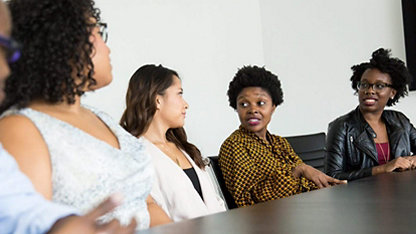December 3rd is UN International Day of Persons with Disabilities which aims to empower and help create real opportunities for people with disabilities. RICS met with Chris Nicholson, a former rugby player who had played at the top level for both club and country until his career was ended by a life changing injury. Chris is now an apprentice Quantity Surveyor with MH Stainton Ltd in Lancaster. He spoke to us about his experience in the profession and being a surveyor in a wheelchair.
What interested you in surveying as a career?
“I didn’t know about surveying initially, but prior to my accident I enjoyed maths and was good with numbers, so in some ways I fell into this. Having the opportunity to do a degree, gain work experience and do the APC was really appealing. It has been a real silver lining and has helped me to focus and find a career that I really love.”
What are the advantages of being an apprentice in surveying?
“By working with my employer MH Stainton, I am able to take what I learn at university and put this into practice in my daily work. Equally, through the work that I am doing, the support of my MD Michael Stainton and PQS Jon Bushell, I am able to apply the work that I am doing to further advancing my education and applying this knowledge to my degree.”
What are the biggest challenges in your job as a wheelchair user?
As a wheelchair user, the public can often see you as invisible, whereas on a building site it is slightly different. People don’t always take you seriously, you’re perceived as not being able to do your job to the full capacity. This certainly isn’t the case, however, in my firm. Our company secretary Gail Stainton has always said that they didn’t see the wheelchair, they saw what I could offer as a young, up and coming surveyor who can add value to the business.
As I said though, this isn’t always the case and certainly perceptions that disabled people can’t do work in construction ‘properly’ can still exist. I constantly challenge the unconscious bias that there is something that prevents me from doing the job, I am not defined by my wheelchair, rather, what I can bring to my firm and the industry. Working with people and firms that are willing to make adaptions makes a huge difference and helps them to learn how to support people with disabilities. If you look at making work places accessible for a disabled person, you then make them accessible for everyone.

Chris at work
What support have you received from your university and employer?
University of Central Lancashire (UCLAN) and, in particular, my course leader Adrienne Yarwood have been immensely supportive, ensuring that I get everything I need. They have provided me with a counsellor which helps in terms of accessibility, timetable scheduling and any issues that may arise.
Michael Stainton has been very helpful and steered me along the right path in the industry. He helps me to apply my knowledge from UCLAN and makes this real, understanding the construction industry better and the work that is required to be of the very highest standard. The support and encouragement from everyone at MH Stainton are incredible. I am learning as I go along and whilst I may make mistakes, we look at this together and I am given all the support necessary to ensure that I get a full understanding of the work that I am doing and how to improve and excel. I am not just a number to the firm, I am valued and from a business that is really making a difference with the projects that they deliver, this is huge for me.
What message would you give to disabled people to encourage them to consider a career in surveying?
If somebody says that you can’t do this or that accessibility is impossible then challenge this; through adaptions on building sites to just saying, I can do this, I can go on site and I can do the job. Focus on what you can achieve, regardless of whatever disability you have and don’t let anyone stop you. There are always adaptions that can be made to enable you to work in this industry.

Chris on site
What can RICS do to promote the profession to disabled people?
For people with physical disabilities and mental illness or disabilities, RICS should market what is possible, whether this is in school or college. Wider diversity should be encouraged, and RICS could play a role in gaining resources and support for disabled people through government initiatives such as Work Access, but it is up to support agencies, firms and RICS to work together to see how they can help disabled people to see a route into this career, by showcasing accessibility this can make a huge difference and will make the construction industry inclusive.
MH Stainton expressed that their motivation for employing Chris was that he was the best person for the job, this was absolutely based on merit and his capability to do the job. Employing Chris helped them as developers to continue their focus and provision of ambulant disabled and Part M, but also make adaptions in their own office to provide accessibility for Chris. Their belief is that everyone should have a chance of a career in the construction industry, and whatever firms and organisations can do to support and enable this will clearly make a difference. Their ground-breaking projects and developments really do make that difference and accessibility and inclusivity is at the heart of everything they do.












